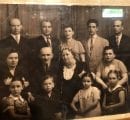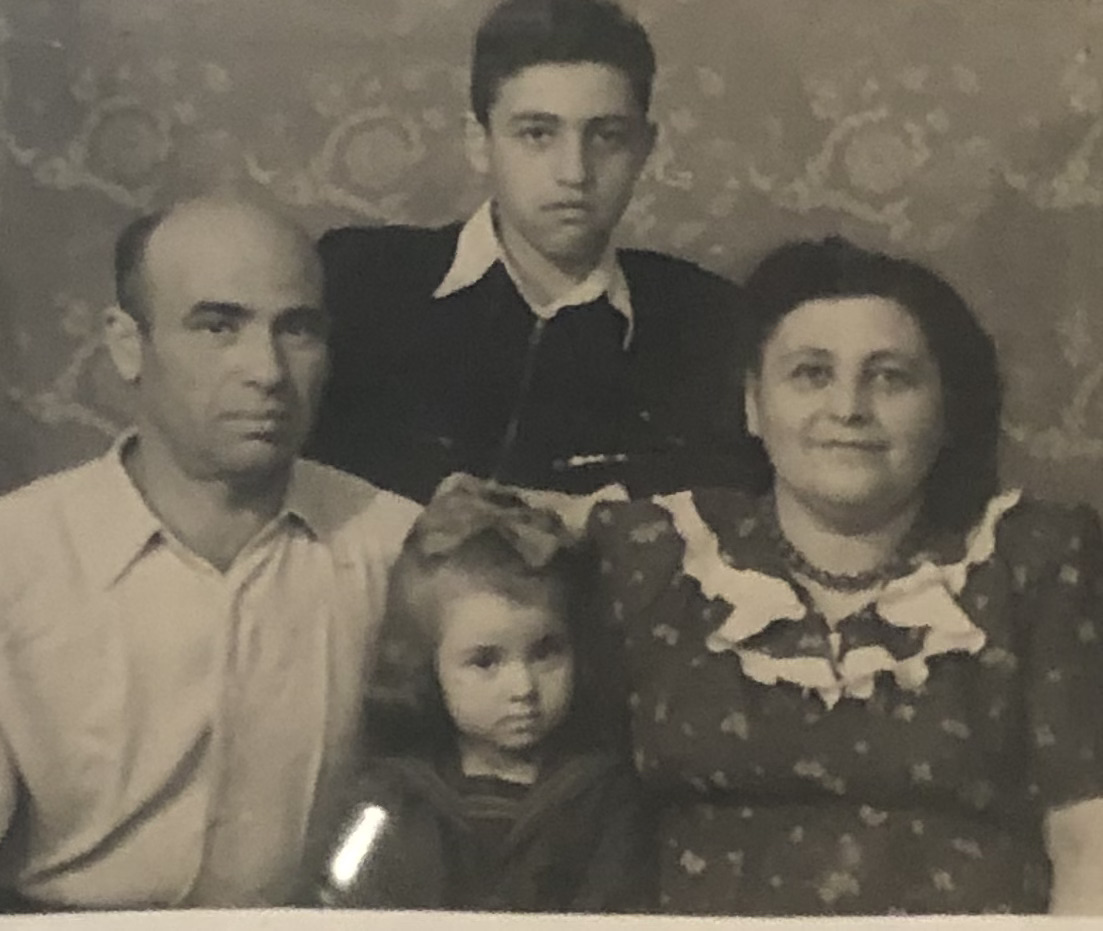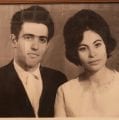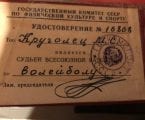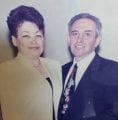- Local Survivor registry
- MIKHAIL S KRUGOLETS
- Local Survivor registry
- MIKHAIL S KRUGOLETS
Survivor Profile
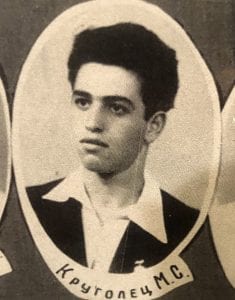
MIKHAIL
S
KRUGOLETS
(1940-PRESENT)
PRE-WAR NAME:
MISCHA KRUGOLETS
MISCHA KRUGOLETS
PLACE OF BIRTH:
ODESSA, UKRAINE
ODESSA, UKRAINE
DATE OF BIRTH:
MAY 1940
MAY 1940
LOCATION(s) BEFORE THE WAR:
ODESSA UKRAINE
ODESSA UKRAINE
LOCATION(s) DURING THE WAR:
ODESSA; TASHKENT, UBEKISTAN
ODESSA; TASHKENT, UBEKISTAN
STATUS:
CHILD SURVIVOR, REFUGEE
CHILD SURVIVOR, REFUGEE
RELATED PERSON(S):
KRUGOLOTS, KLAVDIYA - Spouse,
KRUGOLOTS, IRINA - Daughter
-
brief BIOGRAPHY of mikhail krugolots BY NANCY GORRELL
Mikhail (Mischa) Krugolots was born in Odessa, Ukraine on in May of 1940 to Rachel Graber and Semyon Krugolots. His father was a personal driver for a large manufacturer and his mother was a homemaker. His family lived in the heart of Odessa, in an apartment that Mischa describes in his interview as “beautiful.” When he and his sister were growing up, his mother was home. When the Soviet Union entered the war, his family fled to Uzbekistan. He doesn’t recall much of the time because he was so young, but he remembers being very sick in a hospital with his grandmother suffering from infections and diseases. He was always hungry as a child. In the hospital, the doctors thought he would die.
In 1944 his when the Soviets reoccupied the area, his family returned to Odessa. Their apartment was reoccupied and the Krugolots were forced to live in the basement. His nuclear family, that is, his father, mother, Mischa and later his sister, born in 1955, lived in the basement from 1944 to 1961. Mischa went to school in 1947. The elementary school had been destroyed so he went to an all-boys school from 5th to 9th grade. For high school he went to a “mixed school” of boys and girls. Although he graduated with grades acceptable for university admission, he was excluded because he was Jewish. When asked in his interview if he experienced anti-Semitism, he responded with memories of a anti-Semitic middle school German woman teacher and in high school a geography teacher that didn’t know her subject and objected to him telling her so. In 1957 when Mischa graduated high school, he applied to technical school and got a degree in machinery operation. He graduated from there in 1958.
Then in 1960 he was drafted into the Soviet Army and was stationed in Siberia building secretive military objects for three years. In 1963 he applied and was accepted to the Krasnoyarsk State Pedagogical University in Siberia studying physical education and physiology. He became a professor of physical education and a volley ball coach in college.
Mischa met his wife, Klavdiya at the University. They have two children. He settled in Siberia working at the University and becoming a noted volleyball coach for all of the Soviet Union. When the Soviet Union “collapsed” in 1992, Mischa emigrated to the United States.
-
SURVIVOR INTERVIEW BY NANCY GORRELL
INTERVIEW WITH MIKHAIL KRUGOLOTS AND DAUGHTER, TRANSLATOR
APRIL 23, 2021
KRUGOLETS’ RESIDENCE
Q: Tell us about your family background.
His parents, Rachel Graber and Semyon Krugolot were from Odessa. His father was a personal driver for a larger manufacturer when he was born. When they were children, his mother was home.Q: Where did you live? What was it like?
His family lived in the heart of Odessa, downtown, in a nice beautiful apartment. It was a nice area. In 1944 when they could return to Odessa, it was re-occupied by other people, and they had to live in the basement, Mischa and his parents. It was only 13 square meters.Q: What was your earliest memory?
He doesn’t remember much because he was so young, but he remembers being very sick in the hospital with his grandmother, Naya and always being hungry.Q: What was he sick from?
All the diseases, horrible infectious diseases.Q: Where was the hospital?
The hospital was in Uzbekistan. They thought he would die. He always remembers being hungry.Q: Do you have any brothers or sisters?
He has one, a sister, ten years younger, born after the war.Q: How long did you live in the basement?
He remembers coming back to Odessa. He remembers living in basement in 1944 until 1961, four people, himelf, his parents and sister born in 1955.Q: Did you go to school in Odessa? What was it like?
He went to school in 1947. The elementary school was destroyed. He went to an all-boys’ school from 5th to 9th grade and then mixed boys and girls for high school.Q: Did you experience anti-Semitism in your school years?
The director of the middle school was a German woman. She didn’t like Jewish people. In high school he told the geography teacher she didn’t know her subject. In 1957 when he graduated, he was not admitted to the University. He applied instead to technical school and got a technical degree in machinery operation. He was not admitted to the University even though his grades and his knowledge were acceptable.Q: When did he graduate and what did he do next?
He graduated in 1958. Then, in 1960, he was drafted into the Soviet Army.Q: What was your draft experience?
He was drafted to go to Moscow. Everyone is drafted at age 18 in Soviet Union. But he was working at the time and his boss hid his draft papers and sent him to other work outside Odessa. So, the Soviet authorities came after him because they thought he was a deserter. The authorities sent him another letter directly to his house, and when he got the letter, he reported and they sent him to Siberia.
Q: What did he do in Siberia?
He was in the Soviet Army service for three years in Siberia building military objects (secretive).Q: What did he do after his military serviced ended?
He applied and was accepted in 1963 to the Krasnoyarski State Pedagogical University in Siberia studying physical education, physiology and anatomy. He became a professor of physical education and a coach in college.
Q: How did he meet his wife?He met his wife, Klavdiya at the university. They had two children. He ending up living in Siberia until 1992 when the Soviet Union fell.
Q: Is that when you emigrated to the United States?
Yes. -
Sources and Credits:
Credits:
SSBJCC Holocaust Memorial and Education Center Survivor Registry Interview April 23, 2021; Biography by Nancy Gorrell; Digital historic and family photographs donated by Mikhail Krugolots.


